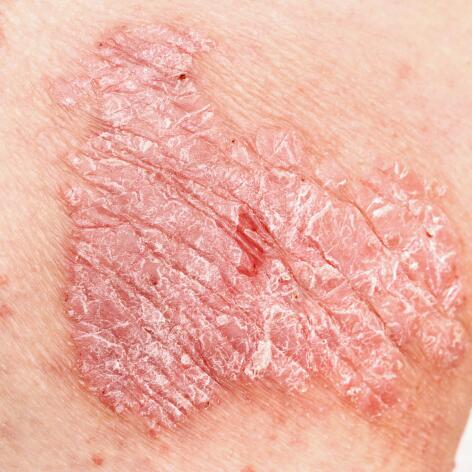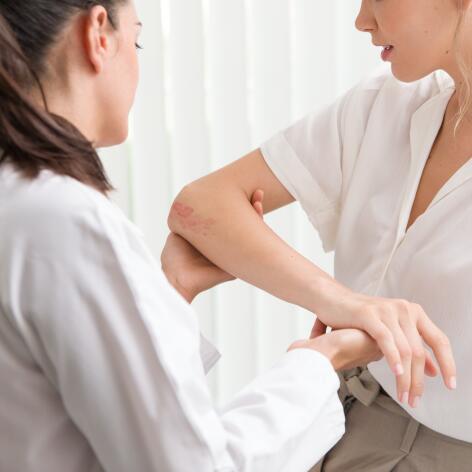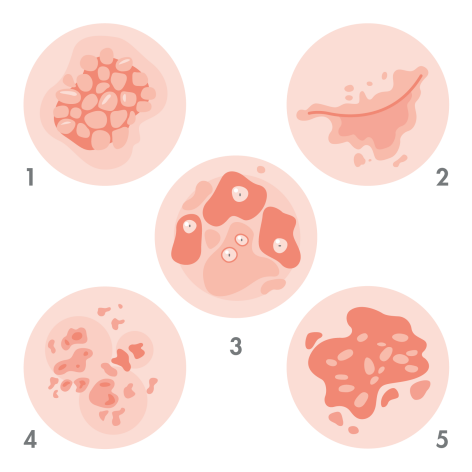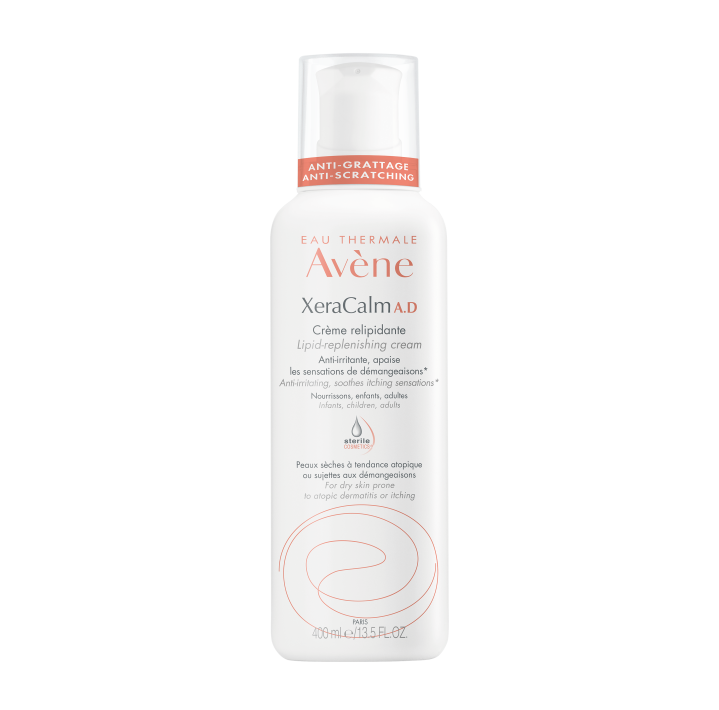Psoriasis
- Living with eczema and psoriasis
- Psoriasis and eczema in children: suitable hygiene
- Psoriasis and adult eczema - rules for moisturizing
- Children - Care and anti-itching tips
- Psoriasis and eczema for children - rules for moisturizing
- Psoriasis and eczema in adults: suitable hygiene
- Living with eczema and psoriasis: Children
- Adults - Care and anti-itching tips
- Living with eczema and psoriasis: Adult
Psoriasis
Contagious or not, genetic or psychological, curable or not... psoriasis remains surrounded by questions... and preconceived ideas. Here are the essentials to know about this disease, which is more common than it seems.
What is psoriasis?
Psoriasis is a chronic inflammatory disease. It can be recognised by its well-defined, red, raised skin patches covered with whitish scales. So where do these patches come from? They are due to an excessive and accelerated renewal of the epidermis, the most superficial layer of the skin (4 to 5 days instead of the usual 28 days). In addition, there is an inflammatory reaction which explains the red appearance and itching.
Psoriasis is not just a disease that can be seen. It is also a disease that can be felt. It develops in flare-ups, the frequency and intensity of which are unpredictable. Psoriasis can therefore have a psychological and social impact.


Psoriasis: what is the diagnosis?
Only your doctor or dermatologist can make the right diagnosis. This is done by a clinical examination of the skin. The practitioner will look for characteristic lesions on the sites where the disease is most prevalent (scalp, knees, elbows etc.).
More rarely, especially in cases of doubt, a skin biopsy (i.e. the removal of a small piece of skin under local anesthetic) may be performed.
The examination also ensures that psoriasis is not confused with another condition, such as eczema. The two diseases are very similar: they are both chronic and display some similar symptoms.
The right diagnosis gives the treatment a better chance
Who is affected by psoriasis?
Psoriasis is not a rare disease. It affects 2 to 3% of the world's population. In France, 1.5 to 3 million people are affected, both women and men. It is, however, more common in people with white skin.
This skin disease can occur at any age, even during childhood (although cases are rarer). There seem to be 2 peaks in the occurrence of the disease: around adolescence (12-15 years) and then around the age of 50. But more than age, psoriasis occurs in people with a genetic predisposition (30% of cases correspond to familial forms) and under the influence of triggering or aggravating factors (skin trauma, certain ENT infections, stress, taking certain medications, being overweight, excessive alcohol or tobacco consumption etc.).
When you have psoriasis you feel alone. Misunderstood. Friends, family, and colleagues all see this disease as a superficial manifestation of an emotional disorder without perceiving the deep and personal drama that plays out inside us.
 Legend 1-Psoriasis vulgaris
2-Inverse psoriasis
3-Pustular psoriasis 4-Guttate psoriasis
5-Erythrodermic psoriasis
Legend 1-Psoriasis vulgaris
2-Inverse psoriasis
3-Pustular psoriasis 4-Guttate psoriasis
5-Erythrodermic psoriasis
Many forms of psoriasis
Psoriasis is a complex disease... with many faces. Its form can vary from one patient to another or manifest itself differently for the same patient over the course of his or her life. The most common form (which accounts for 80% of cases) is plaque psoriasis. It is characterised by thick, well-defined, red plaques covered with whitish scales.
Guttate psoriasis (which accounts for less than 10% of cases) often appears in children and adolescents, following a sore throat. The name comes from the fact that it occurs suddenly, in the form of a multitude of small lesions a few millimeters in diameter.
From head to toe: psoriasis areas
Psoriasis is often associated with a scalp disease (50-80% of patients have scalp flare-ups), but it also affects many other parts of the body. The folds, palms, soles, face and even the nails can be affected. Each of the locations of psoriasis takes a rather particular form and requires appropriate treatment.
FRIENDLY (AND EXPERT) ADVICE
When faced with itching, the temptation to scratch is strong. But don't give in to it. Rest assured, there are many tips to combat itching.
What treatments are there for
psoriasis?
As there are many types of psoriasis, there are quite a few types of treatment. Your dermatologist can help you find the right treatment for you. It's worth the effort. Because treating psoriasis well means being able to control it for the long term. See the spotlight on existing psoriasis treatments to get your bearings straight and better understand the care you need.


Playing YouTube videos requires the use of cookies in order to offer you targeted advertising based on your browsing For more information, please visit YouTube's « cookie » policy.
You have rejected Youtube's cookies and therefore you cannot view the video.
You can change your choices by clicking on « Cookie Settings » and accept Youtube's cookies to enable the video.
You can change this setting and withdraw your consent at any time.
Sun and psoriasis: the benefits... and precautions
It's not just a preconceived notion that the sun has a beneficial effect on psoriasis. But, as is often the case with the sun, it is all a question of the right amount and precautions...
Because the aggression of the skin by sunburn can cause a "Koebner" phenomenon. Not to mention that prolonged exposure opens the door to premature skin aging and skin cancers. A piece of advice: expose yourself gradually and protect yourself.
TO SORT THE TRUE FROM THE FALSE: THAT'S WHAT WE'RE HERE FOR.
It’s a chronic disease. In the case of psoriasis, we do not speak of a "cure" in the strict sense of the word. Rather, it’s about controlling the disease. Thus, current treatments make it possible to obtain long periods of remission (without flare-ups). This is called plaque lightening, in which the itching and scaling are largely reduced.
Psoriasis is absolutely not contagious. This idea – which is still widely held – should therefore be forgotten as a matter of urgency.
There is nothing inherently dangerous about psoriasis. But the psychological and physical discomfort (and even suffering) it causes (in 15% of cases, the skin lesions are accompanied by rheumatic problems) are very disabling. Learning to live with the disease, treating it correctly and maintaining an excellent relationship with your doctor all contribute to better control of the condition.
Our solutions to soothe psoriasis
Eau Thermale Avène skin care products designed to make you feel better in your "itchy skin".
XeraCalm A.D range
I love it, I have no more redness, itching or allergies. My skin is soft.
TO BE CONTINUED
Which skin care routine should you adopt?
Identify what it really needs with the help of our experts and discover the most suitable skin care routine for you.




